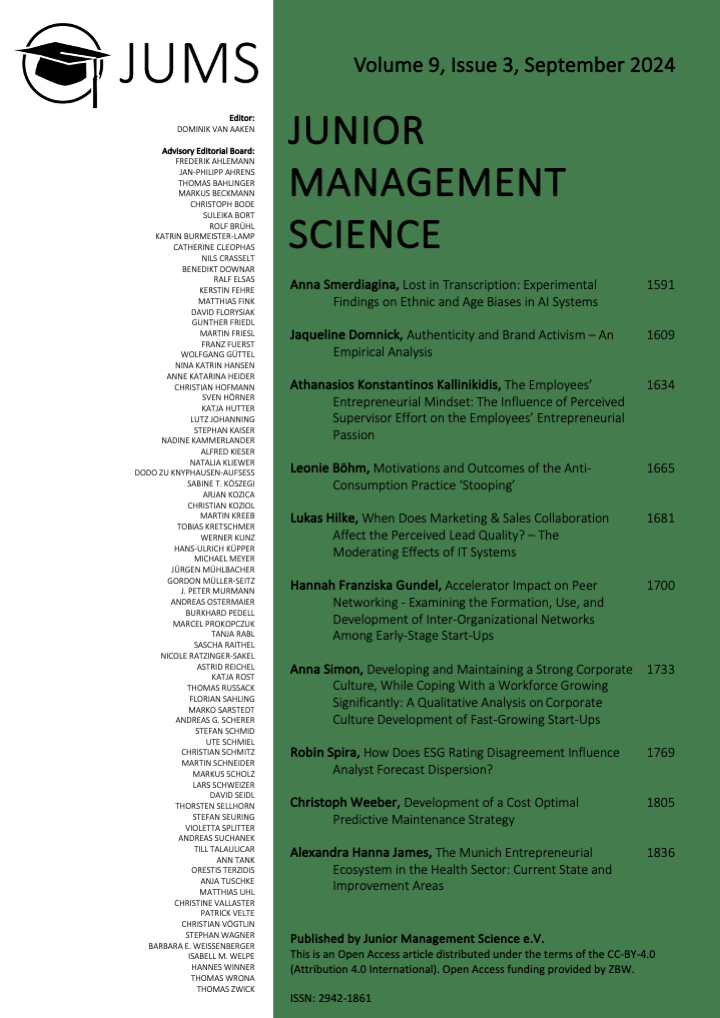Abstract
The climate crisis of the 21st century demands new and sustainable forms of alternative consumption. Within the scope of this bachelor thesis, the emerging anti-consumption practice of “Stooping”, a form of second-hand consumption where items are placed on the street by consumers and can be freely taken and used by others, is examined for the first time. The aim of this paper is to explore possible motivations and outcomes of Stooping. These aspects are extracted from the existing literature on second-hand and anti-consumption and subsequently investigated through qualitative interviews. The results indicate that economic motives, hedonistic values, the simplicity of consumption decisions, sustainability considerations, the upcycling of found products, and the good quality of used products can serve as motivations for Stooping. Outcomes include an increased connection between the seller and the buyer, an increased connection between the buyer and the product, as well as a positive social perception of the consumers. Investigating new consumption trends like Stooping contributes to a better understanding of sustainable consumption practices and can help position them as conscious and deliberate alternatives to traditional consumption.
Keywords: alternative consumption; anti-consumption; second-hand consumption; stooping

This work is licensed under a Creative Commons Attribution 4.0 International License.
Copyright (c) 2024 Leonie Böhm

